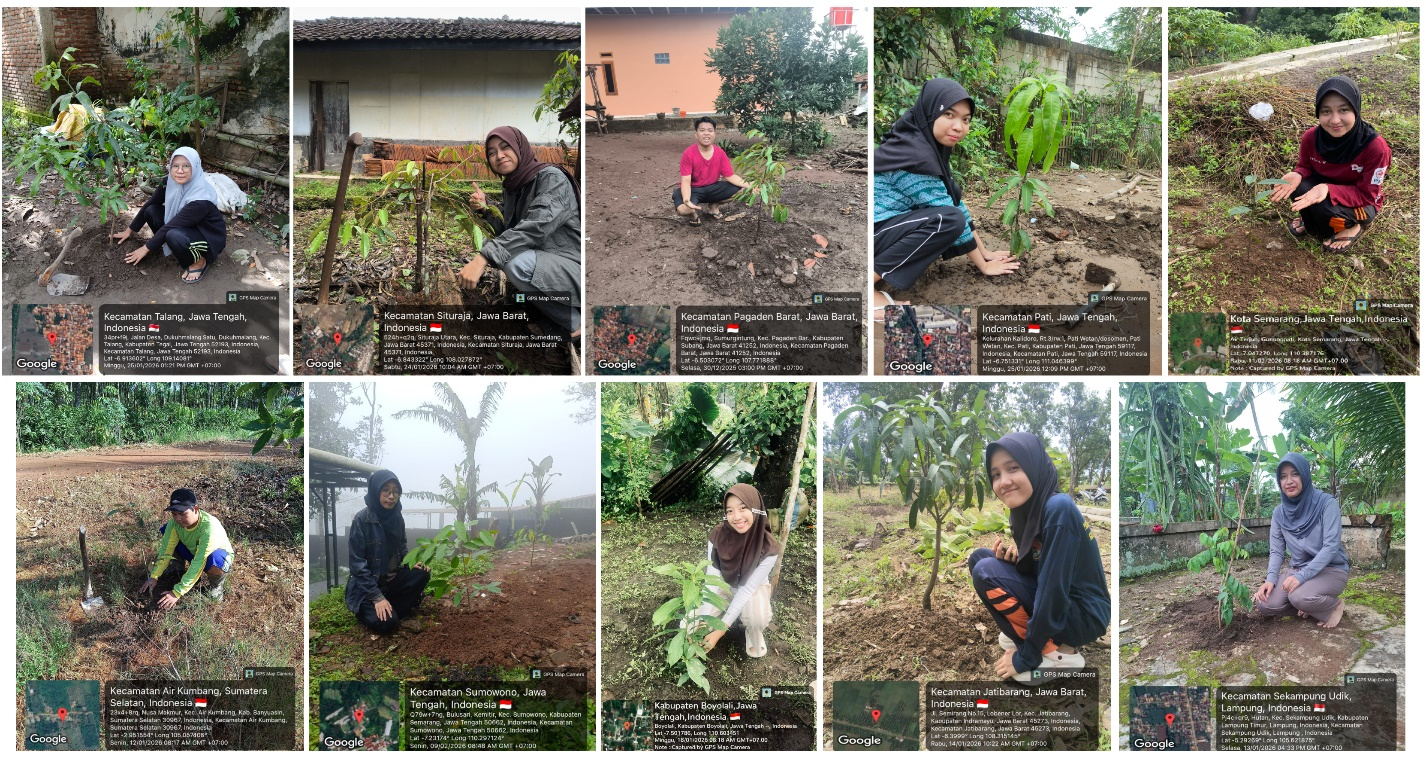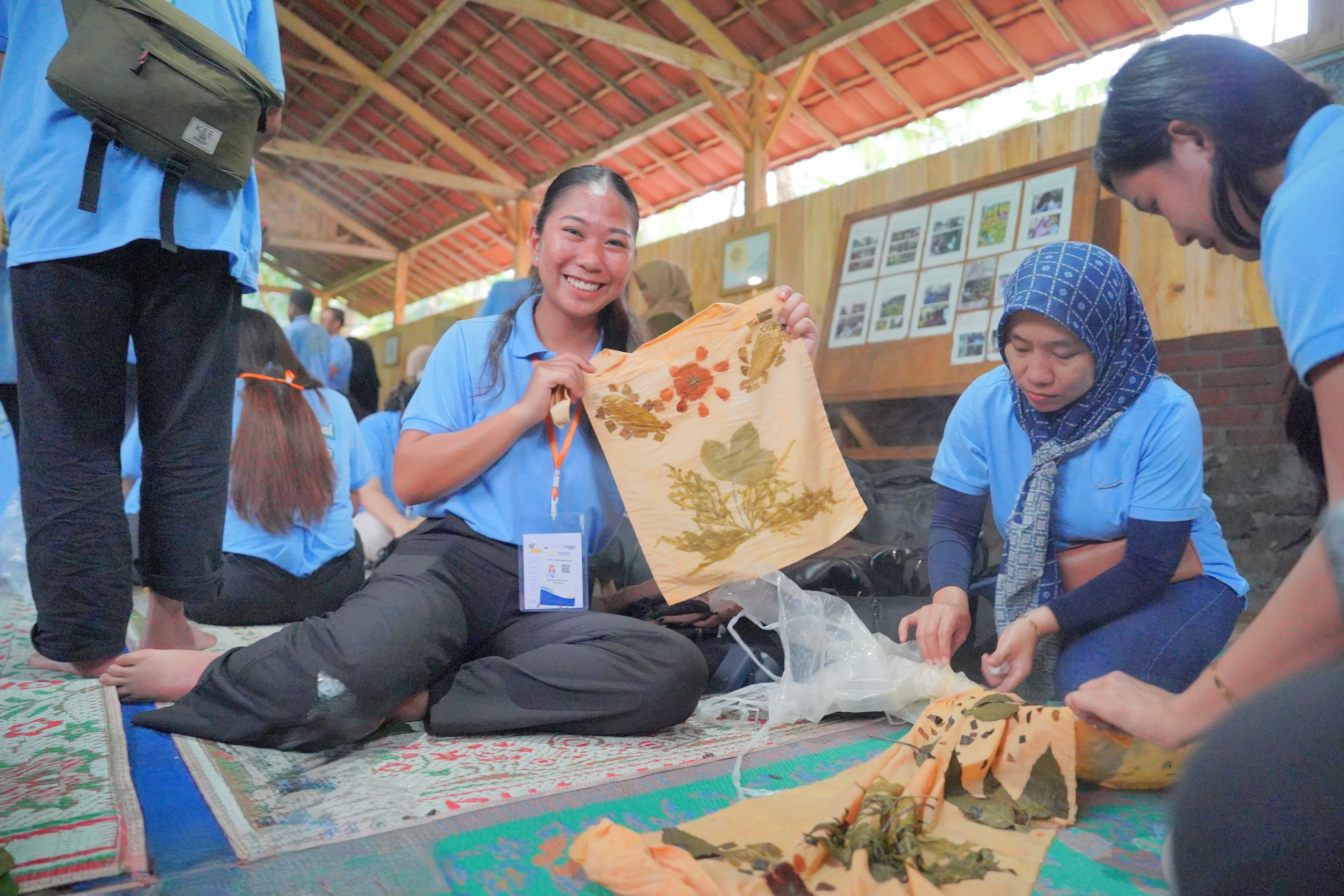
Pada Sabtu (25/9), LPPM UNNES menyelenggarakan Kegiatan Pengabdian Masyarakat dengan tema “Produksi dan Komersialisasi Kerajinan Tangan Berbasis Bahan Marginal Rumah Tangga” di Bank Sampah Mawar RT 03 RW 05 Muntal, Kelurahan Patemon, Gunung Pati, Semarang.
Kegiatan ini dilaksanakan secara daring yang diketuai oleh Prof. Dr. Siti Harnina Bintari M. S. dan menghadirkan tiga narasumber dari LPPM UNNES. Prof. Dr. Retno Sri Iswari S. U dengan materi eco enzim dan pengembangannya, Dr. Sri Mursiti M. Si dengan materi sabun dari bahan baku jelantah dan inovasinya, dan Anindya Ardiansari S. E., M. M. dengan materi kerajinan tangan bernilai jual.
Prof. Dr. Retno Sri Iswari S. U menyampaikan bahwa eco enzim pertama kali diperkenalkan oleh Rosukan Poompanvong (Pendiri Asosiasi Pertanian Organik Thailand). Eco enzim merupakan hasil fermentasi limbah dapur organik seperti kulit buah, sisa sayuran, gula, dan air. Eco enzim berbentuk cairan berwarna coklat gelap dan memiliki aroma fermentasi asam manis yang cukup kuat. Cairan ini bisa digunakan sebagai pembersih rumah maupun sebagai pupuk alami dan pestisida.
Eco enzim juga berperan untuk mengurangi efek rumah kaca dan global warming, mengurangi polusi, sebagai pembersih udara (air purify), bermanfaat bagi tanaman, serta banyak manfaat lainnya.
Anindya Ardiansari S. E., M. M menjelaskan, ada dua jenis sampah berdasarkan sifatnya, yaitu sampah organik (degradable) dan sampah anorganik (undegradable). Sampah organik adalah sampah yang dapat membusuk dan terurai sehingga bisa diolah menjadi kompos, seperti sisa makanan, daun kering, sayuran, dan lain-lain. Sedangkan sampah anorganik adalah sampah yang sulit membusuk dan tidak dapat terurai, seperti botol plastik, kertas bekas, karton, kaleng bekas, dan lain-lain. Namun, di sisi lain, sampah anorganik dapat didaur ulang menjadi sesuatu yang baru dan bermanfaat.
Sampah plastik hingga saat ini masih menjadi perhatian dunia, sebab sampah plastik tidak hanya merusak daratan, namun juga mengancam ekosistem laut.
“Kecenderungan orang menggunakan plastik, jika dilihat dari kacamata sosiologi merupakan sebuah fenomena di mana orang ingin cepat dan praktis. Untuk itu diperlukan adanya edukasi mengenai pentingnya pengetahuan bahaya sampah plastik, serta kesadaran bagaimana menyikapi plastik,” ungkap Anindya.
Anindya juga mengungkapkan bahwa terlepas dari sampah plastik, pengelolaan sampah lainnya seperti kain atau kertas perlu mendapat atensi dari semua lapisan masyarakat. Sebab sampah-sampah tersebut bisa diolah menjadi berbagai barang yang memiliki nilai jual.
Harnina, selaku ketua, juga menyampaikan bahwa bank sampah merupakan gagasan pemerintah Kota Semarang untuk menjaga kelestarian alam lingkungan agar kita dapat menjalani hidup sehari-hari dengan sehat.
“Tumpukan sampah akan menjadi lebih bermanfaat ketika menemukan cara yang tepat untuk pengolahannya. Macam ragam sampah dapat diolah menjadi produk yang mempunyai nilai ekonomi serta dapat dikerjakan oleh berbagai kalangan. Jika dikerjakan dengan telaten dan konsisten maka bisa menjadi sumber pendapatan yang barokah” tuturnya.
LPPM berharap bahwa ada salah satu produk dari Bank Sampah Mawar yang menjadi produk khas dan unggulan dari Kelurahan Patemon. Oleh karenanya, UNNES secara aktif membantu, mendampingi, menguatkan, serta mengembangkan pengolahan sampah agar menjadi produk yang memiliki nilai estetika dan bernilai ekonomi tinggi.
Sumber info:
https://www.suaramerdeka.com/semarang-raya/pr-041279762/sasar-bank-sampah-mawar-lppm-unnes-dorong-produksi-dan-komersialisasi-kerajinan-tangan?page=all



